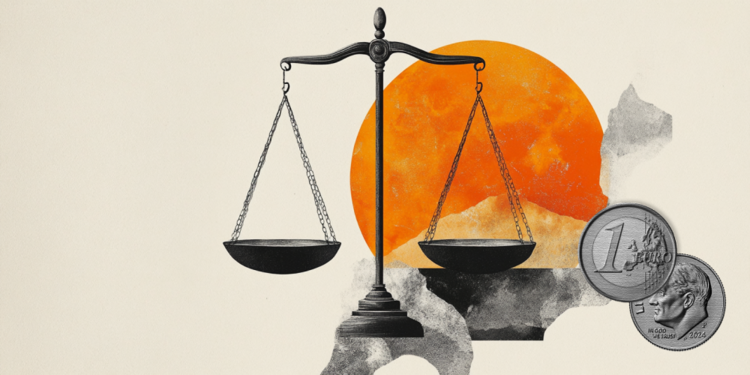What if Donald Trump, who is spending his last day in the White House on Tuesday January 19, snub his opponents one last time? The president could take advantage of these final moments to make extensive use of his power of grace. The Republican billionaire could strike a blow by pardoning up to a hundred people, according to several media. On Monday, he announced the upcoming lifting of the entry ban for European and Brazilian travelers in order to fight against the coronavirus, a measure immediately rejected by his successor, Joe Biden.
In recent months, Donald Trump has exonerated collaborators and relatives, some of whom were convicted in connection with the investigation into a possible collusion between Russia and its campaign team in 2016. These pardons could concern Julian Assange, the founder of Wikileaks, rapper Lil Wayne, who faces up to 10 years in prison for possession of a gun, a famous Florida doctor convicted of fraud, or his disgraced former advisor Steve Bannon.
President indicted after Washington events
Donald Trump could also pardon himself, members of his family or some of the attackers against the Capitol on January 6, when hundreds of Donald Trump supporters invaded the seat of Congress in an attempt to invalidate the victory of Joe Biden. . Five people died in the violence. The outgoing president, who called on his supporters to march on Congress, has been indicted for “incitement to insurgency” and his impeachment trial could open in the Senate shortly after the inauguration of his successor.
“What if he pardoned those people who are Capitol Hill terrorists?” “, Was alarmed Sunday the leader of the Democrats in Congress, Nancy Pelosi. This prospect worries even within the Republican camp. “Asking for a pardon for these people would be a bad thing,” Senator Lindsey Graham, a close friend of Donald Trump, warned Sunday on Fox New.
Some 25,000 soldiers of the National Guard
The federal capital seems for several days in a state of siege, traumatized by the murderous assault on the Capitol. The security measures surrounding the investiture ceremony, scheduled for 12 noon local Wednesday (6 p.m. in France), are exceptional. Some 25,000 National Guard troops and thousands of police officers from across the country will be deployed to provide security.
Nearly 70 protesters have been charged with participating in the violence and hundreds of people are under investigation. Among them, elected officials and former or active members of the police. In order to ensure that the National Guards do not pose a security risk, the FBI has announced that it is checking the backgrounds of reservists who will be deployed on Wednesday. Acting Defense Minister Christopher Miller said on Monday that he had received “no information about a threat from within.”
Flags to represent an absent audience
In a farewell message posted on Twitter Monday, Melania Trump called on Americans to be “do everything with passion and remember that violence is never the answer and will never be justified.” In the capital, armed soldiers and police stationed in front of armored vehicles have replaced passers-by and traffic in streets blocked by concrete blocks.
High gates, sometimes topped with barbed wire, protect the “red zone” between Capitol Hill and the White House. We are far from the atmosphere of jubilation that had invaded the capital after the victory of Joe Biden. The authorities also dissuaded the population from going to Washington to attend the inauguration ceremony, due to the coronavirus pandemic, and called on to follow this day on television.
The organizing committee of the ceremony has limited the number of guests and on the immense esplanade of the “National Mall”, where thousands of Americans traditionally come to see their new president be sworn in, more than 190,000 flags have been planted to represent this absent audience. Donald Trump plans to leave Washington early Wednesday to return to his residence in Mar-a-Lago, Florida. He is the first incumbent president not to want to attend his successor swearing-in since Andrew Johnson in 1869.
Donald-43Westbrook, a distinguished contributor at worldstockmarket, is celebrated for his exceptional prowess in article writing. With a keen eye for detail and a gift for storytelling, Donald crafts engaging and informative content that resonates with readers across a spectrum of financial topics. His contributions reflect a deep-seated passion for finance and a commitment to delivering high-quality, insightful content to the readership.







